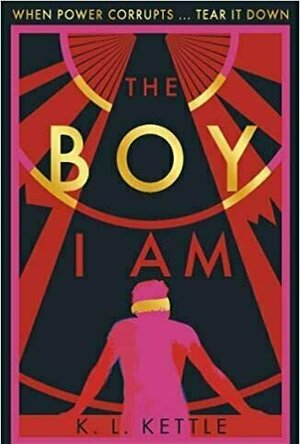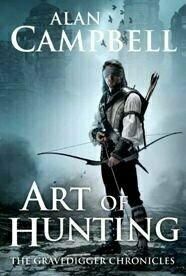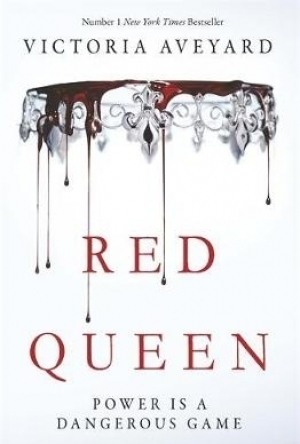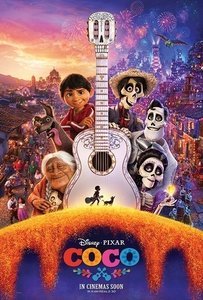Hazel (1853 KP) rated The Boy I Am in Books
Dec 22, 2020
The protagonist, Jude, is running out of time to earn the right to live amongst the women. If he does not gain a sponsor, he faces a future in the dangerous mines. Yet, Jude is not sure he wants to live with the women, who have demeaned him for his gender since his birth. He has seen another side to them and believes the Chancellor has killed his best friend. Jude wants to escape, risk the poisonous fog outside and search for a better life. To do this, the Chancellor must die.
The way women treat men and boys is uncomfortable to read. Female readers, in particular, may have experienced similar treatment at the hands of men. Feminists desire an equal world, but there is the risk of going too far the other way. Yet, as Jude discovers, it is not as black and white as Female versus Male. An underground gang of women known as Hysterics are also trying to escape. They want to save themselves and the boys from a society not run by women, but by the elite.
K. L. Kettle explains her intentions behind the novel in a letter to the reader at the end of the book. She quotes Lord Acton's (1834-1902) proverb "absolute power corrupts absolutely" and questions if everyone is equal, does everyone have the ability to abuse the power they have? What may have seemed a good idea for humanity after the war, has become an oppressive state where no one is safe from those in power, not even the women. The Chancellor controls everyone, but Jude and the Hysterics are determined to take that power away from her.
Telling the story from Jude's perspective highlights the faults in today's societies. Many are unaware of the belittling behaviour happening around them, but when the roles are reversed, they are obvious. The Boy I Am is both thrilling and eye-opening, challenging gender roles and power dynamics in general. Those who have read books such as Noughts and Crosses by Malorie Blackman are guaranteed to enjoy K. L. Kettle's novel.
Natalia (73 KP) rated Detroit: Become Human in Video Games
Dec 17, 2018
While the messages weaved into the game may not be ones people wanted or enjoyed, it can't be denied that the high-risk choices and the way we see glimpses into a wider world around these certainly engage any player. All of your choices seem high stake. Choices you make are timed, and there's no telling if they will have a completely unexpected outcome in the long-run of the story, and even if they don't, at the moment they feel like the most important choices you will ever make. Sure, some choices end up being, ultimately, pointless, but that seems to be a way that reflects life - you will make choices that seem incredibly important, but in the end, have no major result.
The game also follows three separate storylines - all of which do cross at some point within the game - and each has its charms. The most known story is the one following Connor, an android working in the DPD, but the other two focus on characters of seemingly varying importance: Kara, an android in charge of taking care of her owns daughter Alice, and Markus, an android who is charged with helping an elderly man live his day-to-day life as an artist. Within the game, however, these characters hold a similar kind of importance, perhaps due to the fact you play from their perspectives, or perhaps because you will personally gain an attachment to each characters bonds, motivations and lives as androids in a pivotal point in time for this fictional universe.
It's virtually impossible for me to review this game without mentioning the artistic efforts that went into it. Primarily, I mean the art direction and soundtrack. I'm a fan of 2D Indie games as much as the next person, just as I am a fan of the stylized graphics of the Borderlands universe and the art styles of visual novels, but something about how Detroit teeters on the edge of the uncanny valley in the best way possible speaks to how it's trying to reflect the real world. The depth of field in the game is fantastic, and small details are given their deserved attention to make a player feel as though they are watching a real-world story going on in front of them as they play. The music is certainly something that never fails for me in video games (looking at the Sonic games for influencing my love for video game music) but it completely excels in Detroit. Each story has its own collection of songs and a theme - musical loops that repeat throughout the majority of the songs in their sections to boot - and this truly helps with the experience. The way the music helps create an atmosphere, and how it fits almost perfectly into the actions going on, moves you. I don't know how else I can say this, really. Tempo changes, intensity and volume all come together to immerse you into what is happening on screen and have yet to jar me at all from my experience.
I've already mentioned the effect of the music on your mood, but what links well into this is the representation in the game - literally and symbolically. Literally, you see a diverse cast of characters that, despite most of them being androids, provide more proportional race-representation than actual films. Symbolically though, there is a much deeper idea of the past, present and future shown in the game. Perhaps this is me digging a whole lot further than necessary. I wouldn't be surprised. To avoid making this reviews very much filled with spoilers I'll have to talk in a vaguely cryptic way. Throughout Kara's story, there is a sense of being attached to the past, and this is amplified by the tracks that pair with the gameplay, truly making me cry no matter how many times I've seen a similar scene play out before me in a previous run of the game. This same link is shown with Connor and Markus, who link into the present and the past respectively. Unless I want to give away major plot points, I'll have to end my exploration of that little theory there, but if you are planning on playing through, or perhaps doing it again, it may be a good idea to look out for these themes. When you keep them in mind, they seem to pop up all over.
I know plenty of people have a problem with the pacing of the game, which can be quite understandable. Some scenes are long, some bursts of action seem unnecessary and stick around for a while longer than you may want them to, but this doesn't put as much of a damper on playing as it would seem. Pacing is an issue plenty of games have, and it seems perfectly fine to me in Detroit.
This is certainly turning into a much longer review than I had expected to give. I think to wrap this all up I can say that I have an overwhelmingly positive view of this game. Certainly, if you have enough interest in the game to be looking at reviews, this game is for you. I would recommend this for anyone looking for a unique gaming experience.

Porsche 959
Book
Porsche 959 has always been regarded as one of the most exceptional vehicles in automotive history:...

City of the Big Shoulders
Tabletop Game
After the great Chicago Fire of 1871, the brave men and women of Chicago sought to rebuild their...

Art Business News
Art & Design, Business and Magazines & Newspapers
App
For the past 35 years Art Business News has provided comprehensive coverage of the art business and...
Phil Leader (619 KP) rated Art of Hunting (The Gravedigger Chronicles #2) in Books
Nov 8, 2019
The first book follows the story of Thomas Granger, ex-Colonel with the elite 'Gravediggers' army unit now the owner and warden of a decrepit prison in a world that is literally drowning. Humans share the world with the intelligent and long-lived Unmer, for centuries their slaves until a band of telepaths overthrew them. In revenge the Unmer seeded the sees with thousands of small bottles - icusae - which are constantly producing poisonous 'brine', making the seas toxic and raising the sea level.
Granger sets off on a quest to find is estranged daughter Ianthe - herself an incredibly powerful but blind telepath - and so we see this strange and often brutal world, meeting Briana Marks the arrogant head of the telepaths and Ethan Maskeleyne, metaphysicist and hunter of Unmer treasure.
The book ends cataclysmically with Ianthe all but destroying the telepaths' power with her mind and setting the trapped Unmer prince Marquetta free at the same time as her father - now with magical armour and sword - arrives to rescue her himself.
The second book carried straight on from the first, detailing the aftermath of the battle and the Unmer's plans to once again rule, beginning with Marquetta's plan to marry Ianthe. Granger is naturally suspicious of his motives towards his only daughter. Marquetta also needs to eliminate another Unmer lord, Conquillas, who has been hired as an assassin by Briana Marks to kill Marquetta and his uncle. Conquillas is an Unmer rebel who has studied war and hunting until it is an art form to him. Marquetta plans to eliminate him by challenging him to a tournament which is rigged so that Conquillas cannot survive.
Learning of the plans, Granger decides to leave his daughter and travel to find Conquillas and warn him. But soon he has more to worry about as his Unmer sword literally has a mind of its own. Meanwhile Maskeleyne is on his own quest to discover why the unfortunate people who have 'drowned' in the brine seas (but still have a sort of life) are bringing him keys.
As can be seen from the brief description above this is a complex book. Although the story is told from four viewpoints - Granger, Ianthe, Maskeleyne and Briana Marks - the bulk of the story is carried by Granger (on his own quest) and Ianthe (following with the Unmer). Granger is a terrific character - he is gruff and insentimental and is not always a sympathetic character. But he is also very driven and always sees the solution to anything as a straight line, regardless of any obstacles on that path he will just bulldoze straight through them. Ianthe is more subtle as a character because she is essentially tagging along with Marquetta and apart from the marriage plot doesn't really contribute very much.
The world they inhabit is excellent. This is a different kind of fantasy world. Rather than being stuck in medieval worlds as tends to be the case, there is a lot of technology. There are guns and gas cutting torches for example. Everything seems to be very very old and anything enchanted by the Unmer is as dangerous to the innocent wielder as their target.
After the first book it is interesting to see more of the Unmer in action. Marquetta is a proud and determined prince, his uncle fills the role of scheming manipulator well and it is not clear if Marquetta follows his uncle or is merely another pawn in the play. Conquillas is also well drawn for the few scenes he is in, the consumate warrior and hunter while still being otherworldly and cold towards the humans that he deals with. Maskeleyne also comes to the fore in this book after being something of a villain in the first book in this book he is not at odds with the other main characters and so is a much more rounded person rather than a cipher to explain Unmer artifacts and move the plot along.
Yes this is a hard read; the chapters are long (there are only 8 chapters in the book) which means it is a long time between breaks in the narrative and the start does take a long long time to get going although a lot of the information is vital in setting up the rest of the book. Once it gets going however it flows well. In fact I would say the tournament at the end was a little rushed - some more insight into the early rounds would have been interesting I think - but as the main point is to get the final showdown this can be excused.
Overall, a fantastic second part and I eagerly look forward the the third installment.
Rating: Some slight swearing and crude references

Making in America: From Innovation to Market
Suzanne Berger and M.I.T. Task force on production in the innovation economy
Book
America is the world leader in innovation, but many of the innovative ideas that are hatched in...

I Feel Good Vegan Recipes and Meal Plans
Food & Drink and Magazines & Newspapers
App
*** Download today to receive Your FREE 7-DAY TRIAL *** The I Feel Good Vegan Meal Plan Recipes are...
Lee (2222 KP) rated Coco (2017) in Movies
Jan 17, 2018
For the first half hour or so though, the movie didn't really grab my attention. The animation and the attention to detail is certainly superb as we're introduced to young boy Miguel, his large family and the vibrantly colourful Mexican town where they live. During the annual day of the dead celebrations, Miguel finds himself trapped in the land of the dead, another vibrant and beautifully detailed world. Rules are introduced as to how this land works and how the dead are able to visit their living loved ones. But it still left me fidgeting in my seat a little.
But then there's a twist, and a real race against time adventure kicks off. And I also started to get the impression that things were heading towards a pretty emotional ending too. From then on I was loving it. This turned out to be a brilliantly beautiful movie about life and death and the importance of family.
And sure enough, come the end of the movie I'd managed to get some dust in my eyes or something...




